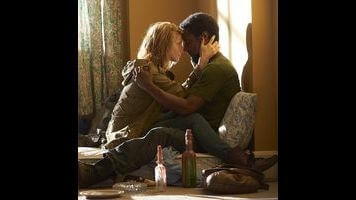ABC’s American Crime is more fraught, equally electrifying in season two

To call ABC’s American Crime “of its time” is an understatement, given the show was born of an expressed desire to braid multiple strands of the cultural zeitgeist into a scripted prestige drama. Creator John Ridley brought the concept to ABC, who was eager to work with Ridley fresh off his Oscar win for adapting Solomon Northrup’s memoir into the 12 Years A Slave screenplay. Slave’s success hinted at the existence of a wide audience for thorny, provocative, even confrontational storytelling, and Ridley ably met the demand with American Crime’s first season, a gutsy dissection of a brutal murder and the ugly, primal behavior it ignites in the surrounding community.
Were this a different era in television, Crime would have excelled as a standalone miniseries, but in the midst of the anthology craze, ABC elected to have Ridley reboot the series annually. The freedom to reconcieve the show with each new season is as liberating as it is potentially disastrous, which should sound familiar to fans of Crime’s closest format peer, Ryan Murphy’s American Horror Story. But Ridley is in a far more precarious position than is Murphy, who is only held to essential storytelling standards when he rolls out new installments of AHS. Because Crime deals with intersectional stories of race, class, gender, religion, and sexuality, it invites criticism that far exceeds qualitative concerns. And in telling its stories in such a bluntly provocative way, Crime tends to keep its audience at arm’s length. It’s impossible to sink into a story even as you question its motives.
The rift between Crime’s storytelling and its impish politics felt less pronounced in its first season, which followed a fairly traditional whodunnit structure despite its disproportionate interest in a bird’s-eye view of the crime’s aftermath. Season two, in which the chain reaction is triggered by a sexual assault between high school students, is an entirely different creature both thematically and rhythmically. And while it’s far more daring, interesting, and ambitious than anything Crime tried in season one, it’s also less emotionally accessible, though not for the reasons Ridley appears to suspect.











![HBO teases new Euphoria, Larry David, and much more in 2026 sizzle reel [Updated]](https://img.pastemagazine.com/wp-content/avuploads/2025/12/12100344/MixCollage-12-Dec-2025-09-56-AM-9137.jpg)




























